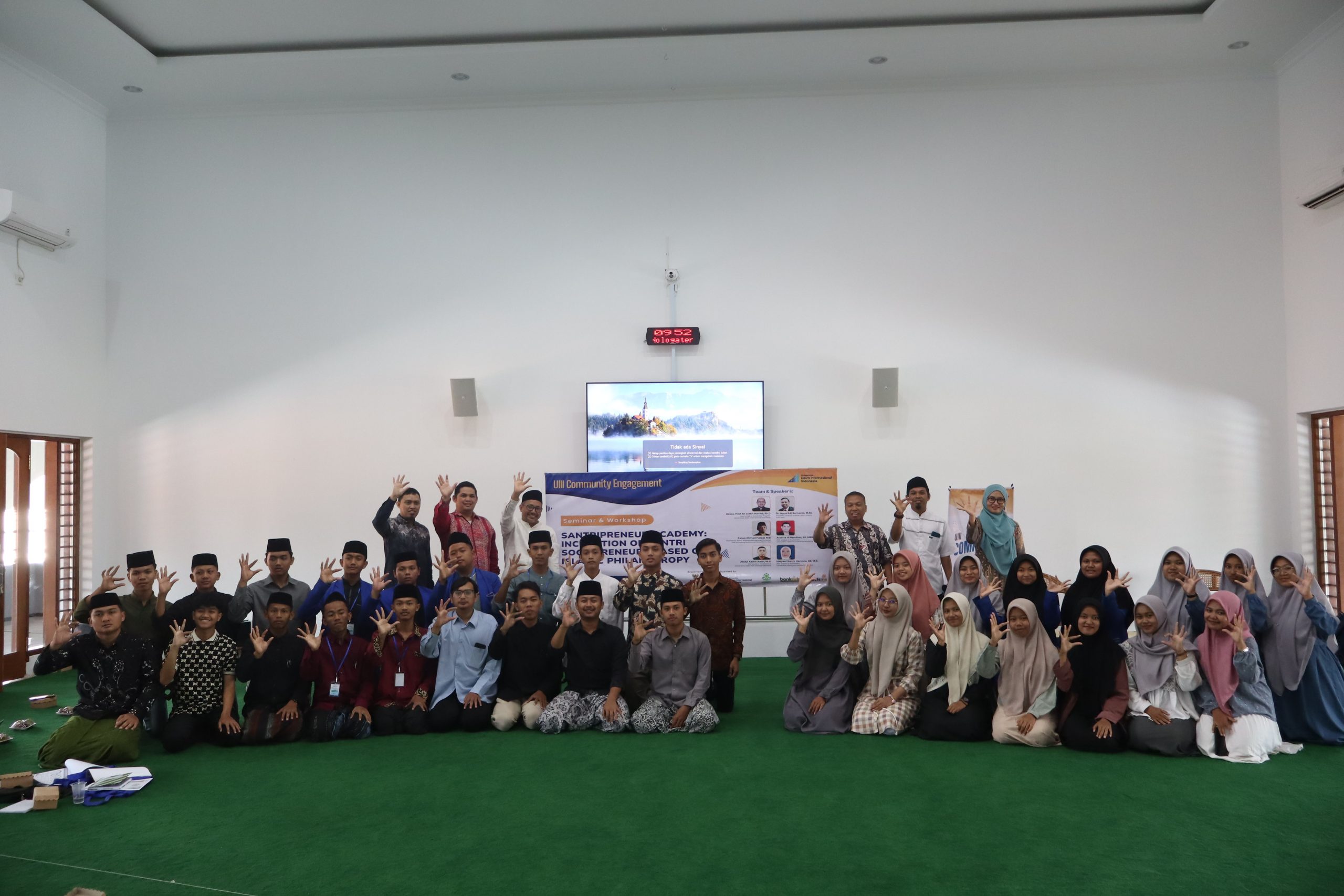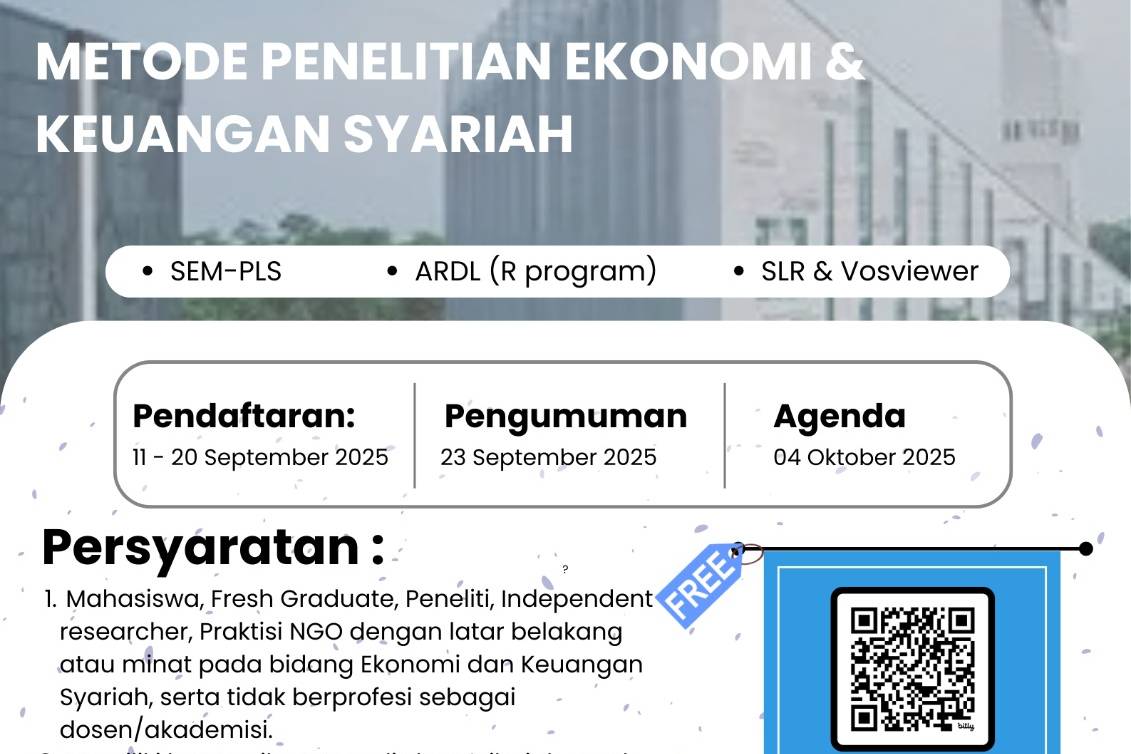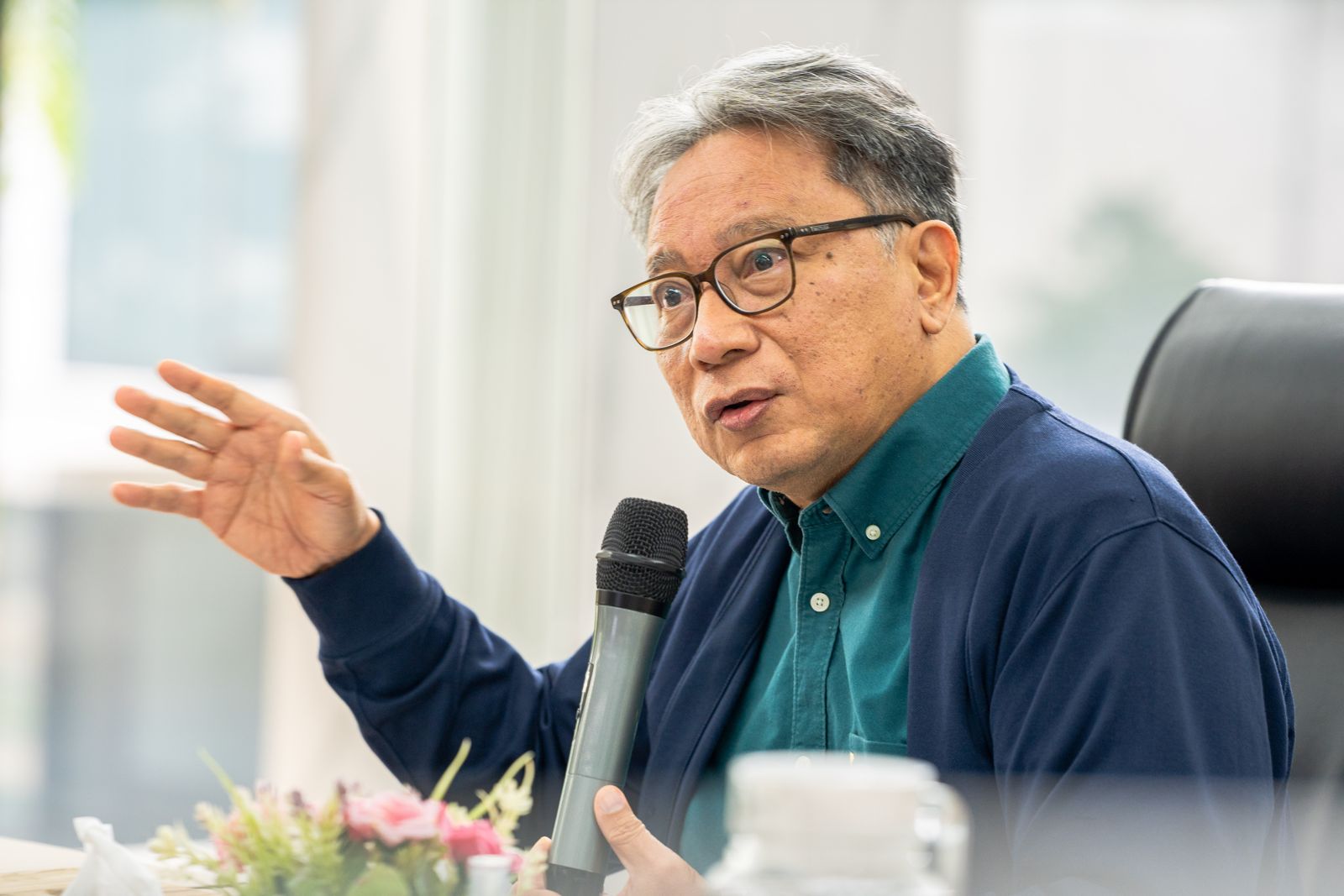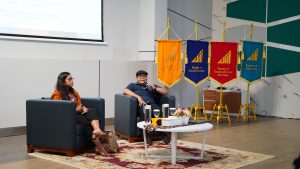
It is always riveting to discuss political sphere in economic perspective, thanks to how huge authoritative policies impact both the micro and macro of economics in one country. With the upcoming election of Indonesia in 2024, inducing dynamic analysis of students and all varsity individuals on political economics might be pertinent to engage more political awareness which further cultivate political wisdoms. Supporting such notion, Faculty of Economic and Business of UIII on 31st October, 2022 held a seminar entitled “Do voters in developing and transitional democracies care about income inequality? The role of media freedom” with Assist. Prof. Puspa D. Amri as the presenter, who is while affiliated with Sonoma State University, US, granted a position as research fellow of FoSS in UIII.
In almost two hours, she led the talk by depicting to the concern of economic voting which highlight the economic growth, inflation and employment as the ground of rational evaluation on strategic policies enactment between the incumbent president and the candidates. With the surge of income inequalities, it is imperative to seek of confronting countermeasure to narrow down the gaps and the entrenched interests. This is to reveal the urgency of upgrading the rational sense of voters to be more knowledgeable in politics and aggregate economy. From Gini index, it portrays that South Asia, Sub-Saharan Africa and Latin America & Caribbean have been witnessing the severe inequality of income, under a soaring rate of agreement in Europe and Latin America that incomes should be made more equal based on World Values Survey.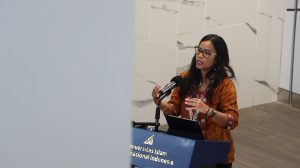
Extending the discussion, she correlated the role of media as the bridge connecting people not only with all political tracks of the candidates, but also valid economic information that enhance the accountability demands over economic performance. Interestingly, the level of the media freedom goes in line with how swift the movement of the democratic transition. In other words, government intervention over the information content as well as the capability of opposition parties criticizing the incumbent government performance are what determines the degree of freedom of the media which thus impact on to what extent the attribution of error committed by citizens.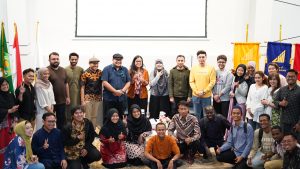
That being said, over her research, it is summarized that primary metrics of what concern citizens in over the accountability of the incumbent government is economic growth, while inflation, unemployment and even income inequality remain questionable factors. This also emphasizes that 38 developing countries economically and democratically saw an economic voting with less institutionalized political parties, low-information voters and patron-client relationships. Furthermore, the extent of media freedom becomes a significant reinforcer the linkage of economic growth and voting decisions.
